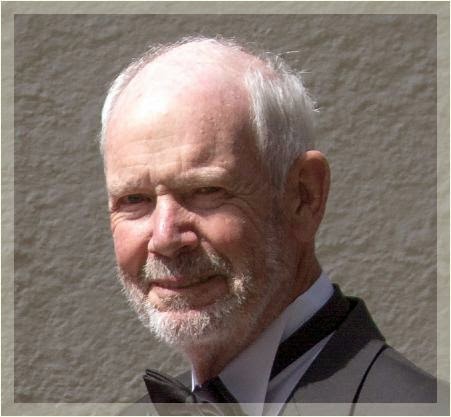An Interview with Dennis Moorby
In his mid-40s Dennis was at the top of his professional career when he went with a friend to India who was visiting his guru Swami Shyam. Dennis looked into the guru’s eyes and saw that he was a really happy man. In that moment something happened, a hidden door opened in him letting out all the happiness he had stashed away for years. He spent the next 2 weeks in India in absolute bliss.
What opened up seemed like a series of calamities. His wife of seventeen years decided to leave him, his nine year-old daughter went through a difficult phase and was put in boarding school and the cut and thrust of climbing the corporate ladder lost its lustre.
From Swami Shyam, Dennis migrated to Bhagwan Shree Rajneesh and did Dynamic Meditation every morning for three months on the trot. Everything that had been self-evident in his life up until that time was called into question and usually found wanting. The result was a more malleable outlook that made the process of letting go that much easier.
The second phase of his journey began when he fell in love. And so started a new intense relationship which provided fuel for the gradual breaking down of the ego and the opening of the heart.
Several years later after going through a period of depression, Dennis went to hear Sogyal Rimpoche talk:
‘I sat in the front row and listened intently to forty minutes of ancient Tibetan wisdom, delivered in an impeccable Cambridge accent. On looking into his eyes at the formal departure, I had my third major Samadhi. I was on cloud nine for the next three months. But the euphoria began to fade but the awareness was such at that time that I had understood the components that had created the spiritual breakthrough for me. Awareness and focus for just forty minutes.'
He then set about bringing these aspects together in meditation to reignite the impetus to seriously follow the spiritual path and cast around for a teacher but nothing rang true.
He picked up a book by Ayya Khema which detailed the path of the Jhanas as a way to explore deep meditative states of consciousness and that resulted in forming the basis of an intense 18-month retreat he did alone in a small apartment in a village in Germany using the road map of the Jhana meditations, facilitated by long and frequent sittings.
‘Equally important in this period was the time outside of formal meditation, where agitation of the mind was kept to a minimum, life was kept quite simple. Walking out in the park, the trees, for example, were treated with full present awareness, as was the bird song and the cake at the Schloss café.
After about eighteen months of this exploration which took me through to touching ninth Jhana, it felt time to take a break. The apartment in Germany was sold, we moved from Ticino to an Alpine Chalet and after Christmas 2009 I took a Giorgetti Chair (it is important to be comfortable in meditation) and began a similar meditation routine. After six weeks of intense meditation I had the breakthrough into a place where the expanded state of awareness was always available in waking state.
So we come to where I am now, coping with living life from the point of view of expanded awareness and relearning to operate in everyday life from a different point of view.
Jac O’Keeffe helped me about a year ago to ‘embody’ the experience, bringing the sense of infinite awareness down into the heart area and grounding through the body. This has allowed my feet to touch the ground a good deal more effectively.' Dennis Moorby
Dennis Moorby sat with Iain McNay for an interview on Conscious TV on the 4th June. You are welcome to watch the complete interview by clicking the link here


















